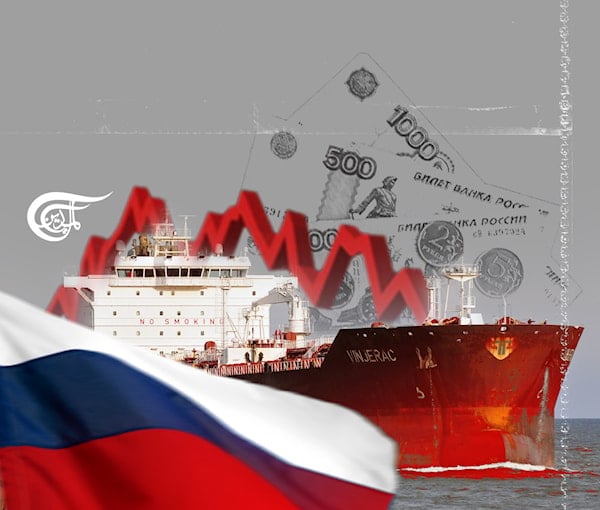Russian Economy Survives One Year of Sanctions
On the pretext of opposing Russia, the United States, being its great ally, has drawn Europe into another conflict, this time at home, and left it economically and politically dry.
The West initiated a barrage of severe economic sanctions on Moscow immediately after the Russia-Ukraine crisis in February 2022, with the declared objective of making Russia and its citizens incapable of participating in global trade. Those were the harshest and most sweeping sanctions in a century. Cutting Russia's links to the international financial system in a globalized economy was a game-ending blow. How could a country so dependent on oil exports recover from this? Yet, the predicted economic collapse never happened.
Individual sanctions include travel restrictions and penalties against entities comprising asset freezes. Those on the travel ban list are prohibited from entering or transiting EU territory by land, air, or sea. In addition, all accounts belonging to the named people and companies in EU banks are blocked while an asset freeze is in effect. It is also unlawful to make finances or assets accessible to them either directly or through an intermediary.
Importantly, while the European Union slapped nine packages of sanctions on Russia in 2022, the country's GDP barely slightly declined. This is because the sanctions imposed on Russia were the toughest and most extensive in over a century. As a result, the Russian government restructured its economy more effectively than analysts anticipated in 2022. As a result, according to the International Monetary Fund, the Russian economy is expected to increase by 0.3% in 2023.
At the start of this year, President Vladimir Putin, during his speech, firmly stated that "2022 was a hard year for us, and we managed to navigate through the threats that surfaced pretty well." Putin opened the segment of his address devoted to business by complimenting and thanking Russian people involved in supply chains, agriculture, food, industry, education, and important social services for keeping Russia's society intact and on track amidst challenging conditions. Putin said Western countries had predicted a collapse or at least a fall of 20-25% in the Russian economy, but the actual GDP decline would be only 2.2% in 2022.
Noticeably, Russia provided 17.5% of all oil traded on the global market, 47% of palladium, 16.7% of nickel, 13% of aluminum (excluding China), and over 25% of all potash fertilizers. Hence, it is not in the interest of Western politicians for the global economy to give up Russian raw materials since doing so would lead to price spikes and maybe years of stagnation. Yet, Russia's reduction of gas exports to Europe in 2021 increased oil and gas prices. In the first month of the conflict, worldwide oil prices jumped by 50%, reaching a high of $139 a barrel in April, while European wholesale gas prices increased by 500%, hitting a high of 300 euros ($320) per megawatt-hour. This resulted in unexpected revenues for Russia.
Likewise, the West imposed some of the worst sanctions on Russia's export industries, including steel, coal, and processed wood, which had excess capacity in the global economy. In 2021, these basic resources accounted for 11.7% of Russia's exports; therefore, restricting supplies to Europe had little impact on Russia's economy. Notably, the IMF's report now forecasts that the Russian economy, which shrunk by 2.2% last year, would begin expanding again in 2023 by 0.3% and then by 2.1% in 2024.
Interestingly, the other major shift occurred in Russia's exports of energy. As the West, particularly Europe, attempted to besiege Russian fuel and wean itself off Russian oil and gas, Moscow found other major clients in China and India. These sales were discounted, but commodity prices surged most of 2022, resulting in a windfall for Russia. Unfortunately, Europe could not abruptly stop importing Russian gas; during the third quarter of 2012, Russian fuel accounted for around 15% of total EU energy imports.
Furthermore, according to Enerdata's report, the share of oil and gas income to the Russian budget climbed by 28% in 2022. As a result, Russia's current account surplus, the gap between money entering and leaving the nation, reached a record high of $227 billion. Russia may be spending more than $300 million on the conflict, but for most of 2022, it earned $800 million daily from oil exports. This cash stream was sufficient to avert a deterioration in living conditions and rebuild Russia's economy.
Russia's central bank lowered interest rates multiple times last year to prevent a recession, flooding the financial system with liquidity. This assisted in preventing a banking collapse. However, central bankers were less concerned about consumer-driven inflation than in the United States. Since war is uncertain, households were afraid to spend; rather, they saved. But to keep the economy humming, the state increased spending. In research, the Russian economist Oleg Vyugin projected that the government's additional expenditures in 2022 amounted to almost 4% of GDP, or over $73 billion.
Notwithstanding, as Al Mayadeen reported, the massive costs that Western sanctions on Russia have imposed on both sides and economic warfare alone will not resolve the crisis in Ukraine. On the pretext of opposing Russia, the United States, being its great ally, has drawn Europe into another conflict, this time at home, and left it economically and politically dry.

 Ruqiya Anwar
Ruqiya Anwar
 5 Min Read
5 Min Read












